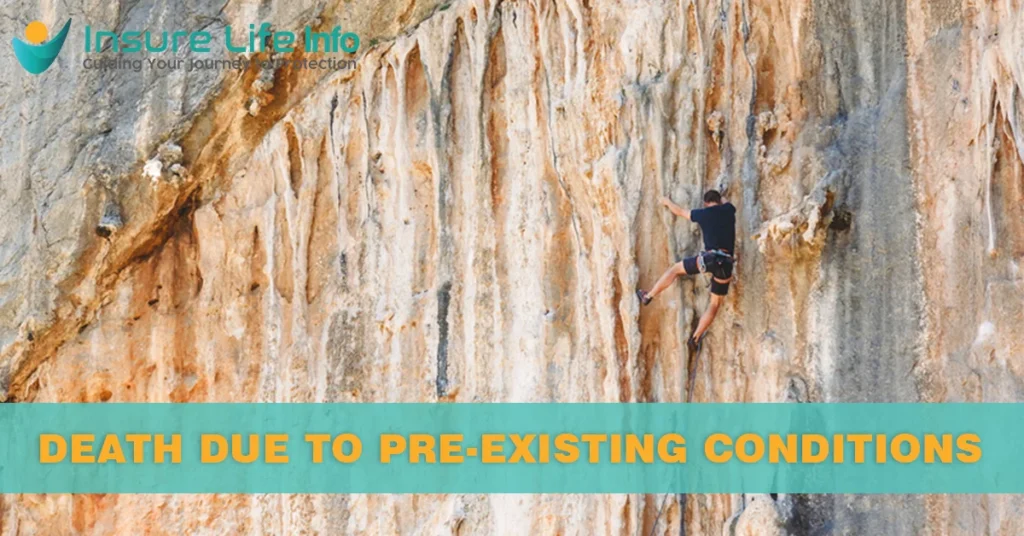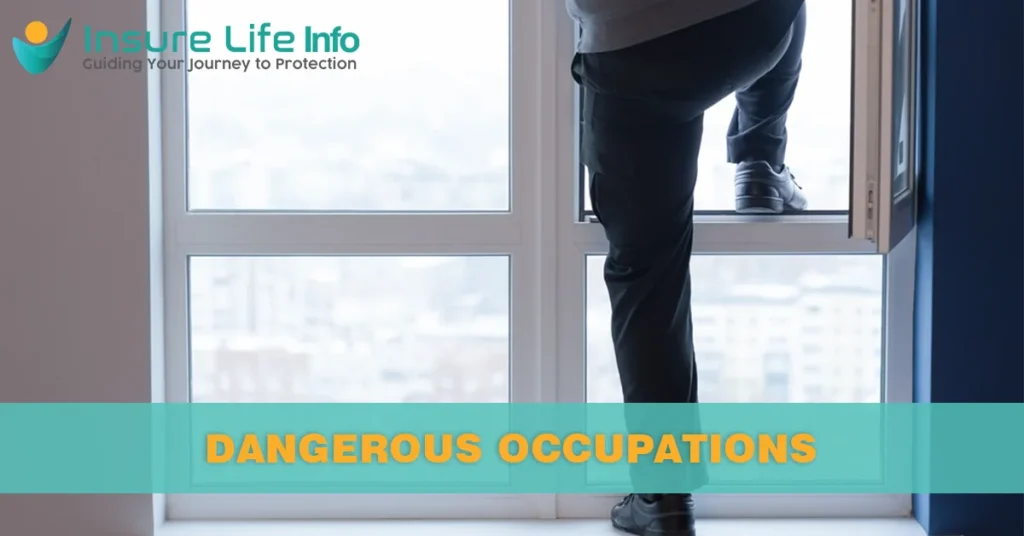Life insurance covers natural death, illness & accidents, but claims can be denied for fraud, risky behavior, unpaid premiums & more. Learn the exceptions to avoid surprises.
Table of Contents
Introduction
When you buy life insurance you sign a deal, with an insurance company that guarantees a tax payment to your chosen recipient or estate after your death. You make payments, for this protection by selecting from policy options that fit your requirements. The money can be used in ways like replacing income paying off mortgages or supporting education expenses. Typically younger and healthier people pay premiums.
Death Due to Pre-Existing Conditions
Life insurance policies typically cover death from age-related causes as well as illness or other natural disasters; however, certain circumstances in which they will not pay out the death benefit are called exclusions and should be noted when purchasing coverage.
Under certain conditions, life insurance policies will no longer provide coverage for instance committing suicide within two years of purchasing one, traveling to war zones, and engaging in illegal activities. Your policy could also become inapplicable if any misrepresented information on your application form such as hiding a medical condition or not disclosing risky hobbies like skydiving.
Life insurance claims typically aren’t contested; nonetheless, it is still important for your loved ones to understand exactly what their policy covers and doesn’t cover in case of your passing. Life insurance exists as a financial safety net that will help replace lost income or cover school expenses should anything happen to you.

High-Risk Activities
Policyholders engaging in high-risk activities, such as using drugs, alcohol, or any form of addiction; engaging in risky hobbies like skydiving and mountain climbing; or illegal activities such as drug smuggling or theft may find their life insurance coverage denied or their premiums increased during underwriting.
Air Education and Training Command defines “high-risk activities” as any sport or recreational pursuit wherein an accident could result in death, personal injury, physical damage to others, and environmental concerns. Examples may include bungee jumping and hang gliding; others include snow sports or hunting.
Facilitators must carefully consider which level of risk best fits their group. Lower-risk teambuilding activities, like icebreakers and energizers as well as getting-to-know-you exercises, should first be used to foster trust and confidence among participants before moving on to higher-risk activities.
Suicide at the Early Stage of Policy
Life insurance companies sometimes exclude suicide from their policies early on. This may be done due to a contestability period clause that allows insurers to review applicants’ medical records and investigate suspicious or fraudulent claims made during policy activation; typically lasting one or two years from the policy activation date. This period includes any deaths by suicide that occur during this time frame though this rule doesn’t always apply with group coverage such as employer-provided policies state laws may influence how an insurer handles this exclusion clause.
Suicide clauses exist to deter individuals from taking out life insurance policies as an inducement to commit suicide, so there is a potential need to understand any specific provisions their provider might include in their policy.
Dangerous Occupations
Workplace injuries may be common, but certain occupations pose greater risks of death than others. Such work often requires proximity to dangerous machinery, remote work locations, or hazardous weather conditions that must be dealt with every day.
Construction, demolition, and landscaping workers rank among the most hazardous occupations in America; however, their risk of injury or death can be minimized by adhering to state and federal safety regulations. Other risks related to their jobs may include being exposed to air contaminants, lung-damaging dust, or being struck by large objects.

Life insurance does not cover other risky activities, including skydiving, bungee jumping, and helicopter skiing. Before engaging in any of these activities, individuals must sign a waiver acknowledging all associated risks; otherwise, their insurance provider could deny paying out their benefits.
Murder Committed by the Beneficiary
Many people do not realize that life insurance does not cover murder. When someone dies from natural causes or accidents such as motor vehicle crashes or drownings, their beneficiaries typically receive their payout. If a beneficiary commits homicide to collect their death benefit payout, life insurers may investigate for possible fraud and disqualify the beneficiary from claiming if this was determined by them – potentially leaving no one who can make a valid claim for it.
Insurance providers don’t want to pay out money if a policyholder falsifies their application, commits fraud, or commits unlawful acts such as murder. Therefore, there’s usually a two-year waiting period before policyholders can make claims, giving insurers time to investigate and determine if fraud or criminal activity has taken place – another reason it is essential to be truthful with life insurers during application processes.

False Information on Applications
Accurate or false information provided on an insurance application can have serious repercussions, from the underwriting process – when an insurer evaluates your risk and decides if you can be insured – through to later discovering lies after policies have been issued, or after the policyholder dies and their beneficiaries file claims against it.
An intentional misstatement on an application could disqualify you from coverage or cause the death benefits to be reduced or denied if found after it has been issued. Life insurers frequently check medical and driving records, MIB (Medical Information Bureau) reports, and MIB Clearance system to detect fraudulent applications before offering coverage.
Minor mistakes like forgetting to mention past health conditions usually won’t have any lasting repercussions, while inaccuracies concerning high-risk activities or jobs could prompt your insurer to cancel your policy and reduce payout amounts. A two-year window usually exists after policies have been issued when insurers can review an applicant’s information to detect misrepresentations and investigate claims of fraudulent practices.
Conclusion
Life insurance offers a safety net, for your finances. It’s vital to be aware of the exceptions. It’s important to know the situations that could lead to claim denials and carefully go through your policy details. Being truthful and clear is key. Don’t risk your family,s security. Make sure you grasp what life insurance excludes and prepare accordingly.
Read More About Life Insurance
FAQ’s
What is not included in life insurance?
Life insurance policies usually do not cover cases involving self-harm, pre-existing health conditions, risky activities, or hazardous occupations.
What type of death is not covered by life insurance?
Life insurance usually doesn’t cover death by suicide, murder by the beneficiary, or death due to fraud or misrepresentation.
What is excluded by a life policy?
A life policy typically excludes pre-existing conditions, high-risk activities, dangerous occupations, and death due to war or terrorism.
What is not applicable in life insurance?
Life insurance does not cover situations involving deceit in providing information or neglecting to make premium payments.




